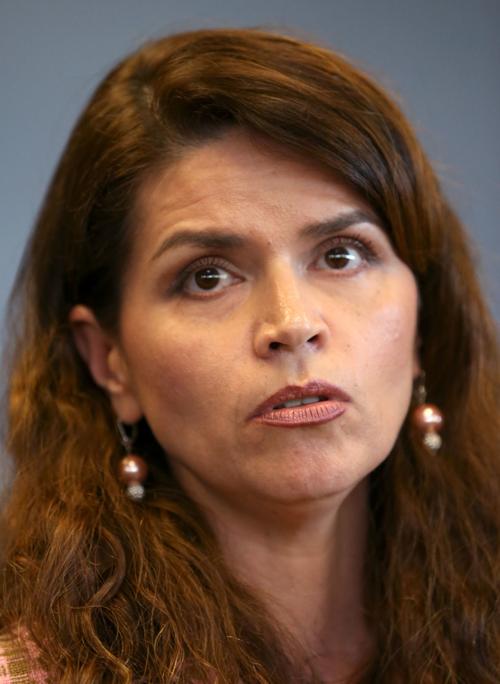The Tucson City Council backed a resolution on Tuesday night to support the Nogales City Council's fight to take down razor wire along the border wall.
The seven Democrats on the Tucson City Council unanimously backed the resolution that opposed the Trump administration's efforts to increase militarization of the border region.
In a memo to the city manager, Councilmembers Regina Romero, Steve Kozachik and Richard Fimbres asked for the resolution nearly two weeks ago.
"Razor wire is used in prison facilities and in war zones. It has no place serving as a visual and physical barrier between us and our neighbors in Mexico," the three Councilmembers wrote. "Along with the Nogales Mayor and City Council we say, Mr. Trump , tear down this wire."
The Nogales City Council, which passed a similar ordinance two weeks ago, said the concertina wire laid in horizontal rows would "indiscriminately harm or kill anyone who actually scales the border wall."
Romero said on Tuesday night that the razor wire in Nogales is painful to witness.
"To be frank, the raising of the razor wire in the city of Nogales is repulsive and abhorrent. I can't stand for an affront to our communities that is happening right now," Romero said. "The city of Tucson has a long history of standing in solidarity with refugees and immigrants in the community."
Most recently, the Tucson City Council unanimously passed a resolution opposed to the construction of a new border wall in June 2017.
More than two dozen residents filled the Council chambers on Tuesday night in support of the resolution.
Kozachik said he hoped other local leaders, including the Pima County Board of Supervisors, would follow in asking the federal government to take down the razor wire.
Kozachik told the audience that 125 asylum seekers from Central America arrived at the former Benedictine Monastery in midtown Tucson on Tuesday.
"If the President wants to talk about a national emergency, we have a humanitarian emergency that we as a community — not as a city government — a community is addressing," Kozachik said.





